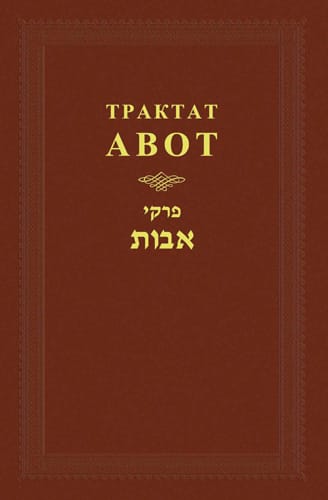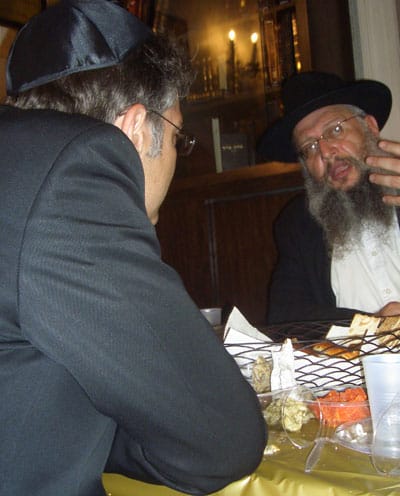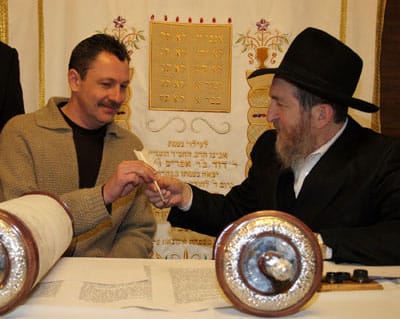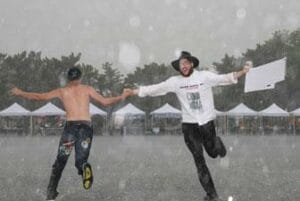BROOKLYN, NY — Monday, May 14, 2007



Downtrodden by betrayal and reversals of fortune, Alex Winner never imagined a 2000-year-old Jewish book would bolster his spirits. Two years ago, a concerned friend lugged Winner to Lubavitch World Headquarters, during the High Holidays. “He said I could pray, put on tefillin, give charity, and maybe I’d feel better,” said Winner. In the cavernous space filled with the hum of scholars and a polyglot of visitors, the Kiev-born Winner, a Moscow conservatory trained oboist, met Rabbi David Okunov associate program director of Friends of Refugees of Eastern Europe (FREE). “I cannot say I was looking for religion, but I was looking for support.” When Rabbi Okunov offered him a slim volume entitled “Ethics of the Fathers,” Winner accepted it out of curiosity, out of desperation.
Between the covers, Winner found a wealth of Jewish wisdom, ethical guidance and moral instructions. Age-old teachings like: “It is not up to you to complete the work, but neither are you at liberty to desist from it” (Ethics 2:21), and “Who is wise? He who learns from all men” (4:1) made their mark. “I discovered my understanding of Judaism was primitive. I now see it is complex, full of ideas that will take me years to fully understand, and that is the biggest gift because it pushed me to seek more knowledge.”
Just as Ethics of the Fathers – Pirkei Avot – opened Winner’s eyes to the richness of his heritage, FREE anticipates many more Russian-speaking Jews will be enriched by the publication of a new translation of the seminal work into Russian. Produced through a collaboration between FREE and SHAMIR, an association of Russian-Jewish scientists in Israel, the new volume has already been snapped up by study groups, private libraries and individuals interested in engaging in study in their mother tongue. Notable members of the FREE Alumni Association, Mikhail Filimonov, Greg Raykher and Vadim Iosilevich sponsored the first printing run.
In keeping with the high standards set by F.R.E.E. and SHAMIR in their over 100 other publications, the new Ethics volume is more than a highly readable word-for-word translation by Rabbi N.Z. Rapoport. Crafted under the sure hand of Editor-in-Chief Prof. Herman Branover, it features nuggets of salient commentaries from the classical – Rashi and Rav Obadiah M’Bartenura – to the contemporary – especially those of the Lubavitcher Rebbe, Rabbi Menachem M. Schneerson.
“This book is geared for all Jews, no matter what their educational or observance level,” said Rabbi Mayer Okunov, Chairman of F.R.E.E. “The ethical teachings within Pirkei Avot are a breath of fresh air in a world that has grown increasingly muddled and complacent with the lowest common denominator of behavior.”
Avid fans of the new publication assembled in Beis Dovid in Brooklyn on Shabbat afternoon. The study group of 30 regulars has been meeting for years to delve into Jewish texts. Now, in the traditional season for studying Ethics, the new book’s insights have sparked many thought-provoking discussions during class, according to group leader Rabbi Yoseph Volovik. Rabbi Volovik, a mainstay of F.R.E.E.’s Adult Education Division, serves as the Gabbai at Beis Dovid synagogue in Crown Heights’ section of Brooklyn, America’s first Russian synagogue. Having a Russian translation in hand changes the dynamic between him and the class participants. “They look at the text and take it apart on their own,” Rabbi Volovik. Instead of a teacher-student atmosphere, the class is like “learning together among friends, and everyone takes part.”
For Alex Winner’s part, Ethics of the Fathers was just the beginning. A year ago, he approached Rabbi Okunov and told him he completed studying the text. “I felt myself in a position to appreciate that my nation has been given a gift of Torah, and I needed to dedicate time to study its wisdom.” He undertook studying the Torah, line by line, chapter by chapter. This year, he met Rabbi Okunov with more good news. He had finished his first go through of the Torah, and to his surprise the entire Jewish people was celebrating with him. Without intent or planning, Winner had completed his studies on Simchat Torah.



